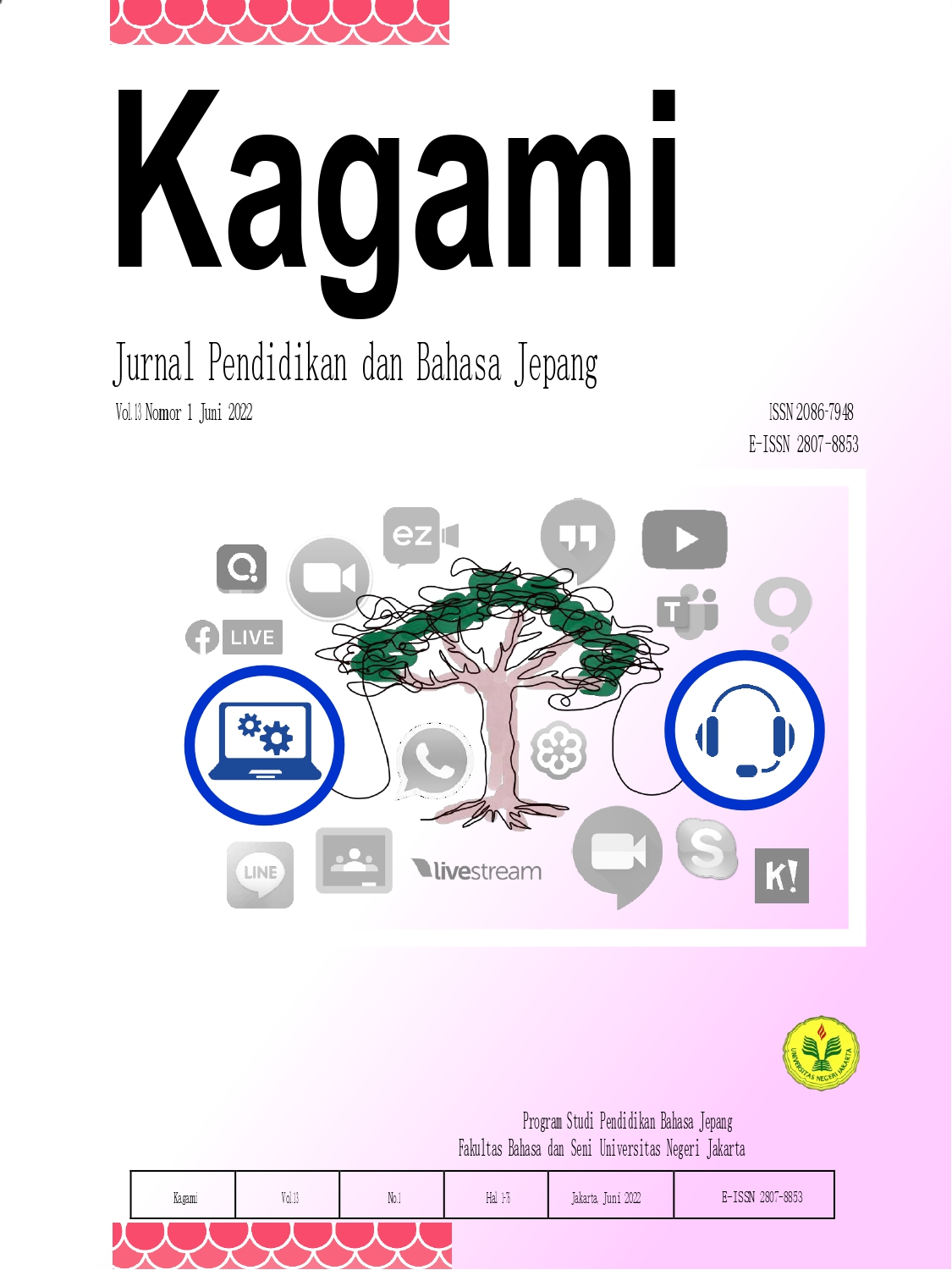Improving Presentation Skills in Japanese through Project Based Learning in Kaiwa VI Lesson
Keywords:
Project Based Learning, Kaiwa, presentastionAbstract
This research aims to determine the presentation ability of Japanese Language Education students at the State University of Jakarta in Kaiwa VI lesson using conventional learning methods and Project Based Learning models, to determine the improvement in presentation skills of students who receive Project Based Learning, as well as to determine student responses on the application of the Project Based Learning model in Kaiwa VI lesson. This is motivated by the problems found in the Kaiwa VI lesson, including: the lack of student's ability to think critically in solving a problem, and students are less able to understand the content of research so that they are not optimal in presenting the research results. This is influenced by the lack of a literacy process and the lack of an independent data collection process by students because so far students have only presented the results of other people's research. Project Based Learning is a student-centered learning model to conduct a deep investigation of a topic. The method used is True Experimental Design in the form of Posttest Only Control Group Design research. The sample in this research were students who took Kaiwa VI lesson which were divided into experimental groups and control groups. The results showed that students who received the Project Based Learning model got an increase in presentation skills better than students who received conventional learning. This is shown in the results of the posttest data analysis, the experimental group has an average of 5.6 points higher than the control group. Student responses regarding the implementation of the Project Based Learning model are quite good.
References
Mulyati, Yeti. 2015. Keterampilan Berbahasa Indonesia SD. Jakarta: Universitas Terbuka.
Kemendikbud. 2020. Permendikbud No. 3 tentang Standar Nasional Pendidikan Tinggi. Jakarta: Kementrian Pendidikan dan Kebudayaan.
Sari, Lutfiana Indah. 2015. Penerapan Model Pembelajaran Berbasis Proyek (Project Based Learning) untuk Meningkatkan Hasil Belajar Keterampilan Berbcara Siswa Kelas VA SDN Ajung 03. Jurnal Edukasi UNEJ 2015, II (1), 11-14. Online.
Diner, Lispridona. 2020. Proses Pengembangan Daya Kritis Mahasiswa dalam Mata Kuliah Nihonjijo melalui Pembelajaran Berbasis Proyek. Journal of Japanese Language Education & Linguistics Vol.4 No.1.
Shimbo, Tomoko, dkk. 2017. Project-Based Learning in Japanese Language. Revista QUID (Special Issue), 708-712. Online. https://www.dialnet.unirioja.es/descarga/articulo/6145561.pdf (diakses 30 Desember 2021)
S, Syamsidar, dkk. 2018. Pembelajaran Fisika Berbasis Cone of Experience Edgar Dale pada Materi Elastisitas dan Fluida Statis. Jurnal Pendidikan Fisika Universitas Muhammadiyah Makassar Vol. 6 No. 1, 3-5. Online. http://www.journal.unismuh.ac.id/index.php/jp/article/download/1196/1094 (Diakses pada 30 Desember 2021)
Rusman. 2010. Model-model Pembelajaran. Jakarta: Grafindo Persada.
Grant, M.M. 2002. Getting A Grip of Project Based Learning: Theory, Cases and Recommendation. North Carolina: Meredian A Middle School Computer Technologies. Journal Vol. 5.
Ngalimun, 2016. Strategi dan Model Pembelajaran. Yogyakarta: Aswaja Pressindo.
Nurfitriyanti, Maya. 2016. Model Pembelajaran Project Based Learning Terhadap Kemampuan Pemecahan Masalah Matematika. Jurnal Formatif 6(2), 149-160.
Sutomo, Erwin. (2007). 9 Presentasi Kreatif dengan PowerPoint 2007. Yogyakarta: Andi Offset.





